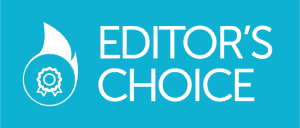Safety of Sweeteners
Sweeteners sound like the ideal solution to added sugar. No calories and none of the cons of refined sugar means you can enjoy it in excess right? The answer is, we don’t know yet.
As of now, there are 6 sugar substitutes approved by the FDA. These include-
- Aspartame
- Saccharin
- Sucralose
- Acesulfame potassium
- Neotame
- Advantame
Two more sweeteners are allowed to be used under FDA GRAS status. The public can only pinpoint these names out of a list of ingredients 37% of the time.
In just 4 years, the use of these additives has almost quadrupled across products. Of course, these substitutes would not have been approved if they weren’t deemed safe. Nonetheless, each substitute has its own safety limit documenting how much of the product an individual can safely consume. This is generally not an issue as so little of each is included in food.
However, these sweeteners do not have the same invisible effect on everyone. Individuals with the rare disease phenylketonuria (PKU) often have issues metabolizing phenylalanine which is included in aspartame. Additionally, excess use of these sweeteners for anyone could result in gastrointestinal issues. Further, there has not yet been research on any long-term effects of these substitutes in children. 73% of parents want to know the amount of these ingredients that are in their children’s foods. 66% want substitutes clearly identified on all food labels.
The populace is honestly leaning more and more toward clean foods. 3/5 say that they would prefer to reduce their sugar intake than to increase their intake of sugar substitutes. But without knowing what substitutes are in their foods and in what amounts, they aren’t able to make this call for themselves.
The Sugar Association
The Sugar Association has filed a petition to the FDA in an effort to change their regulations surrounding sugar substitutes and sugar alcohols. Its simply about changing labeling rules to increase transparency for the public.
The Association represents a total of 142,000 sugar growers and processors in the United States.
This petition was submitted on June 3rd, 2020.
The Petition
This petition includes 4 requests. These are to-
- Add “sweetener” after each artificial sweetener in ingredient lists
- Disclose the type and amount of artificial sweeteners in children’s food
- Include a clause explaining what sweetens food labeled as no sugar or low sugar
- Mention potential gastrointestinal side effects that may stem from sugar substitutes/alcohols
The FDA will reply to this petition within 180 days since it was submitted.








